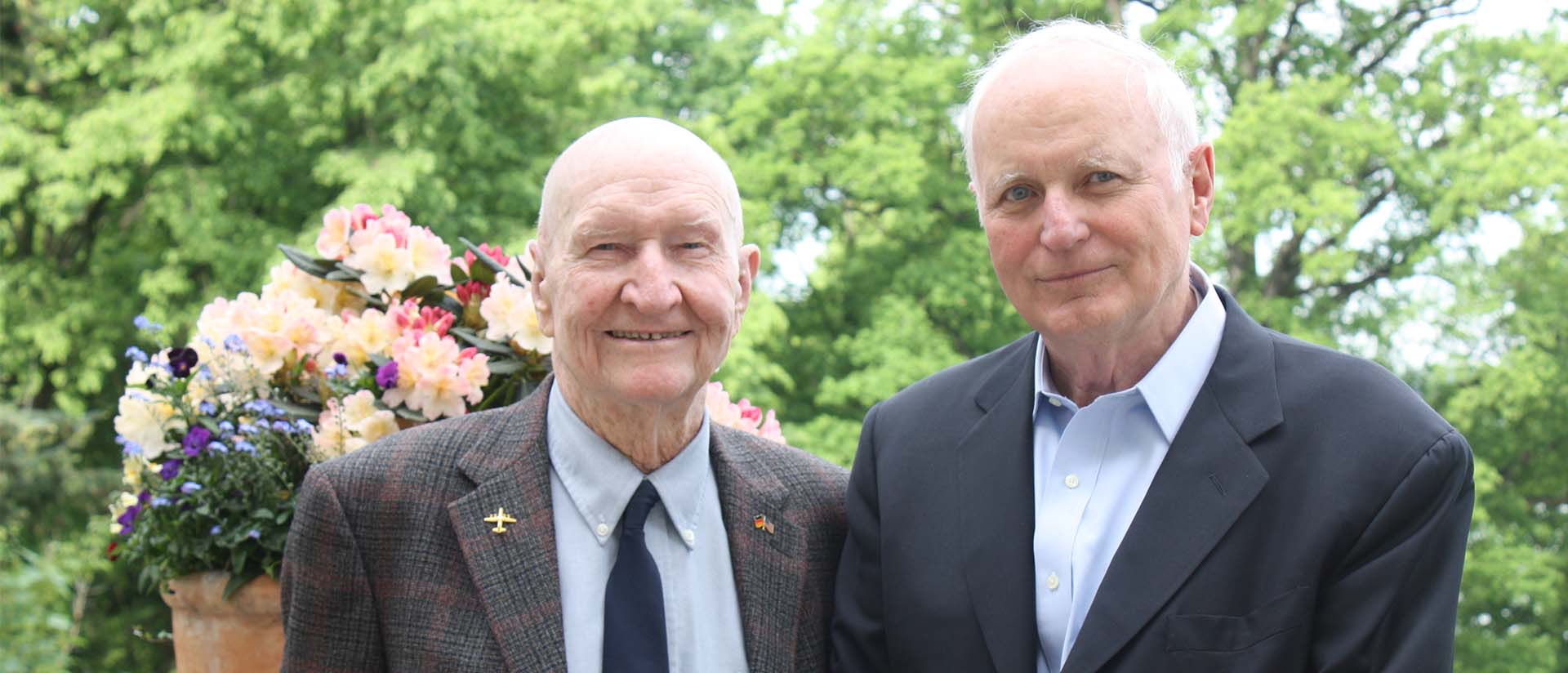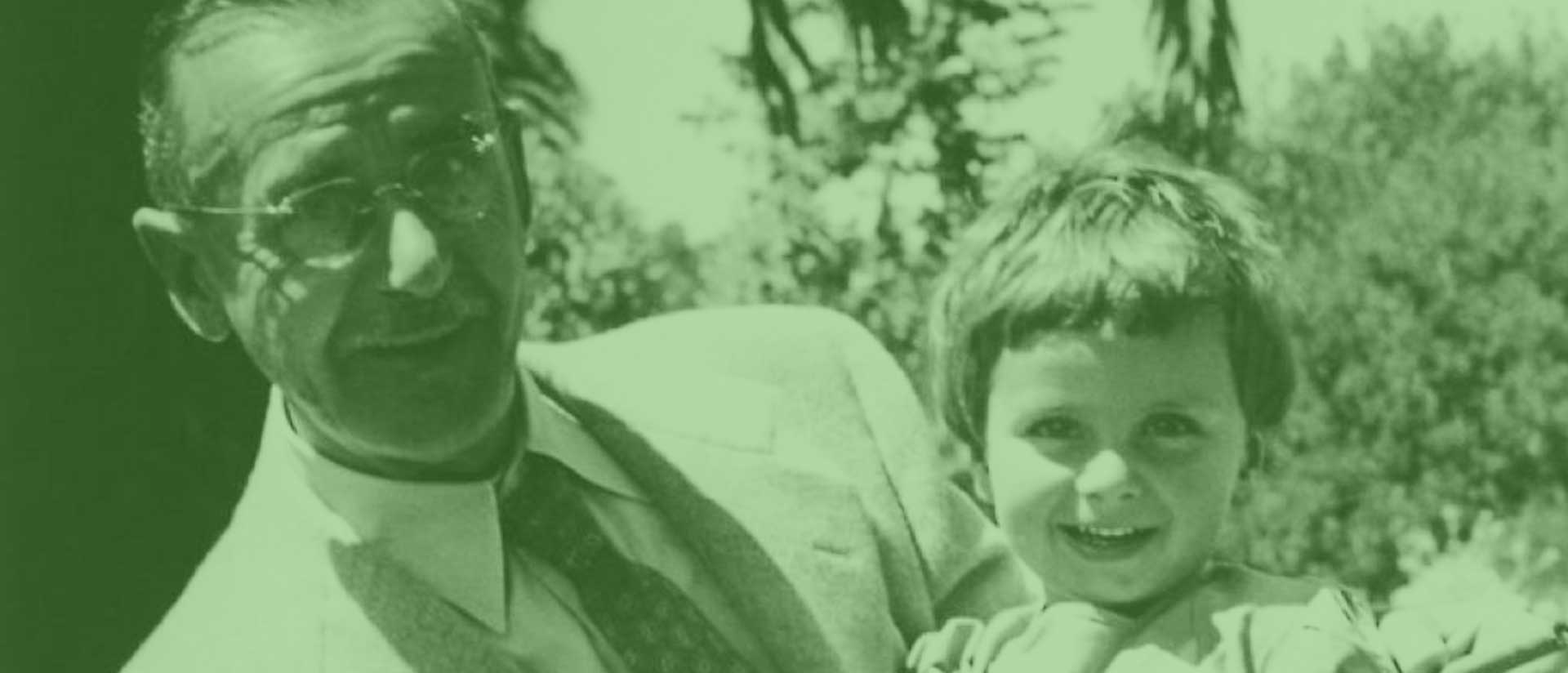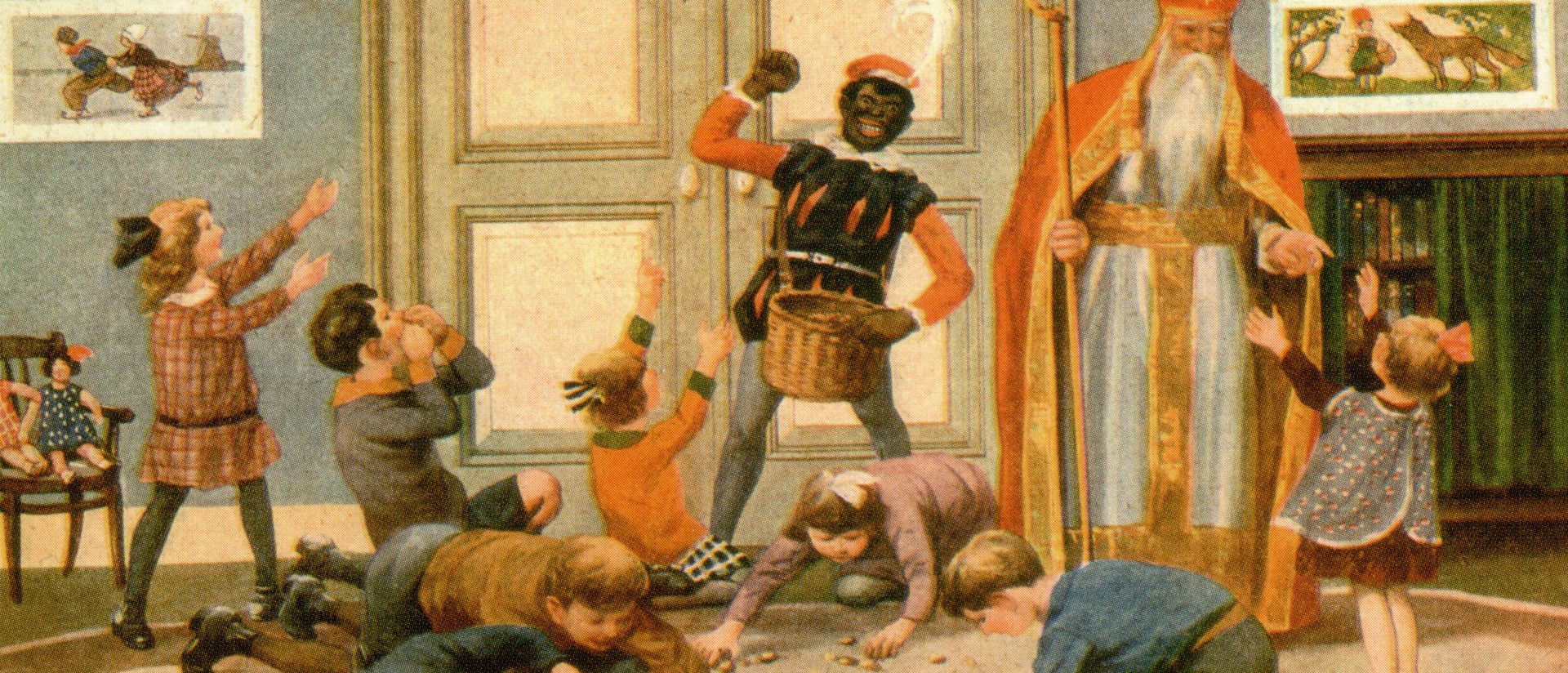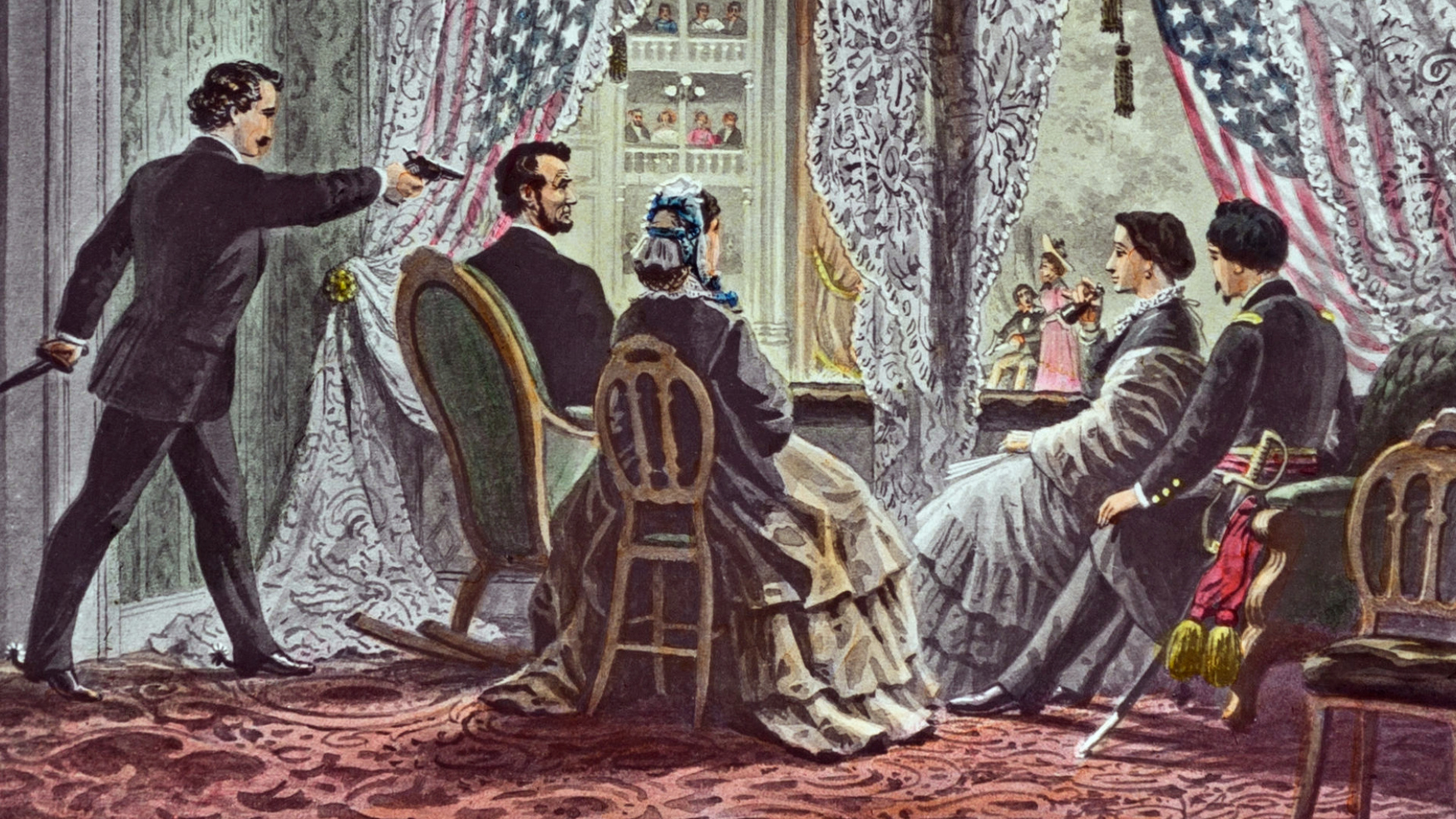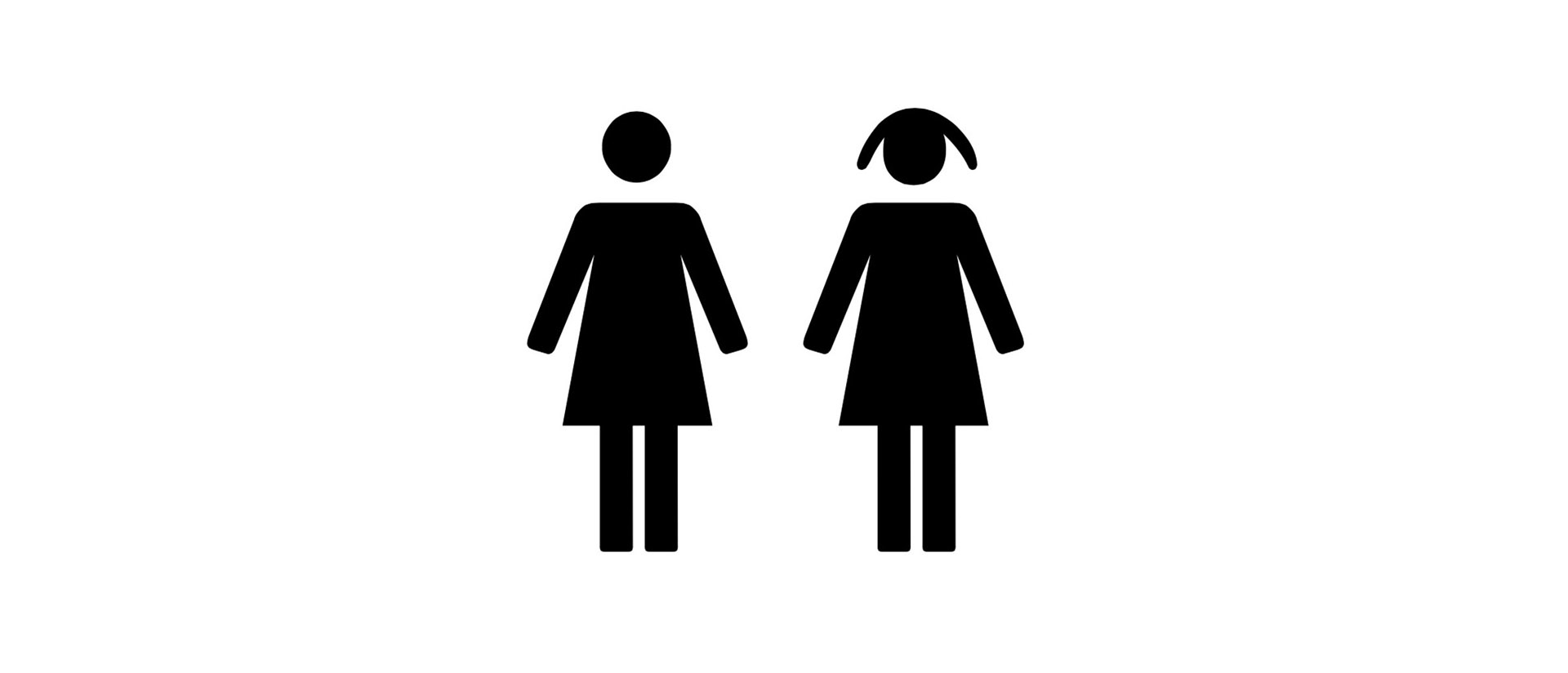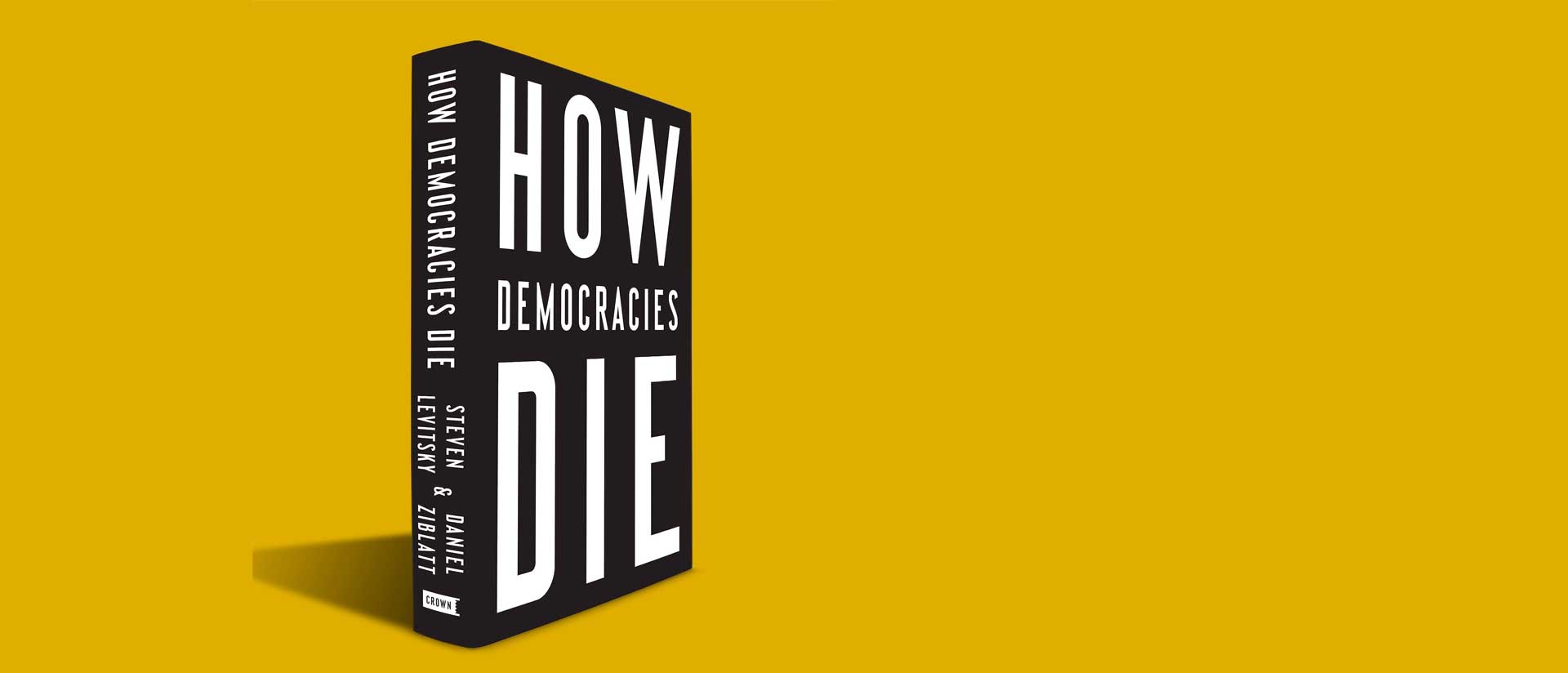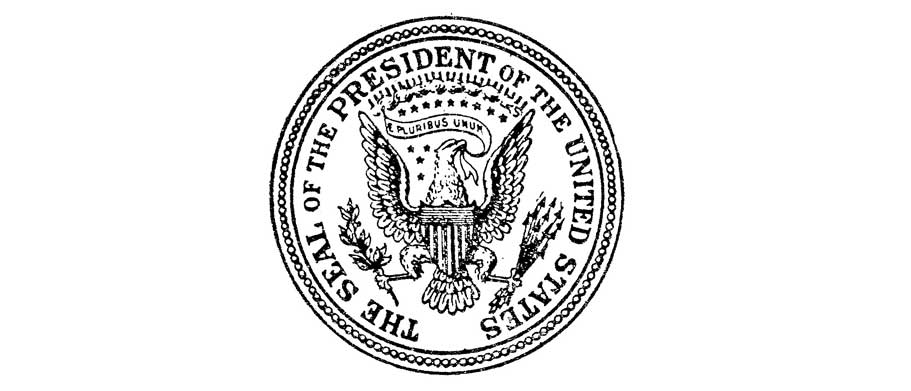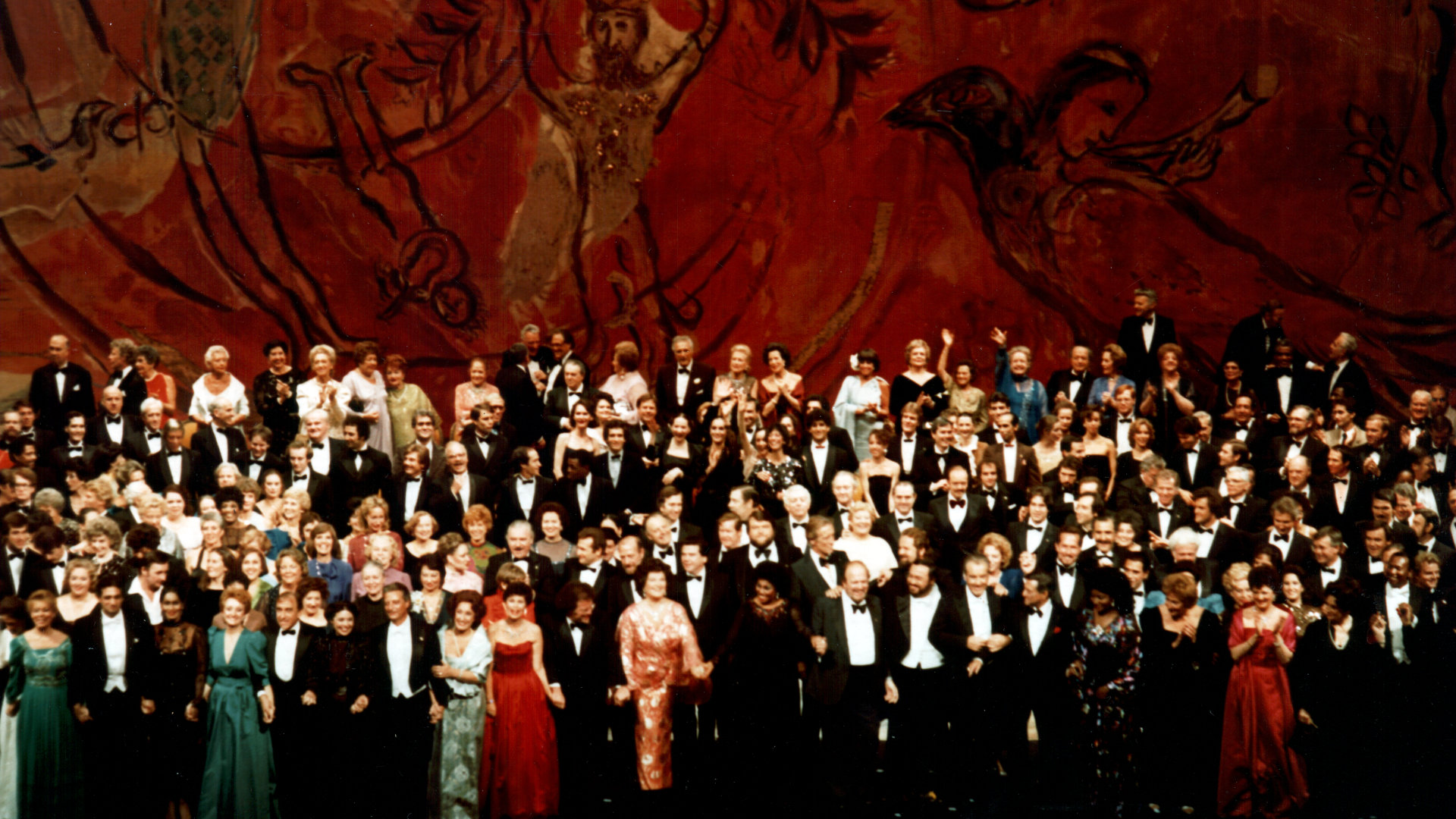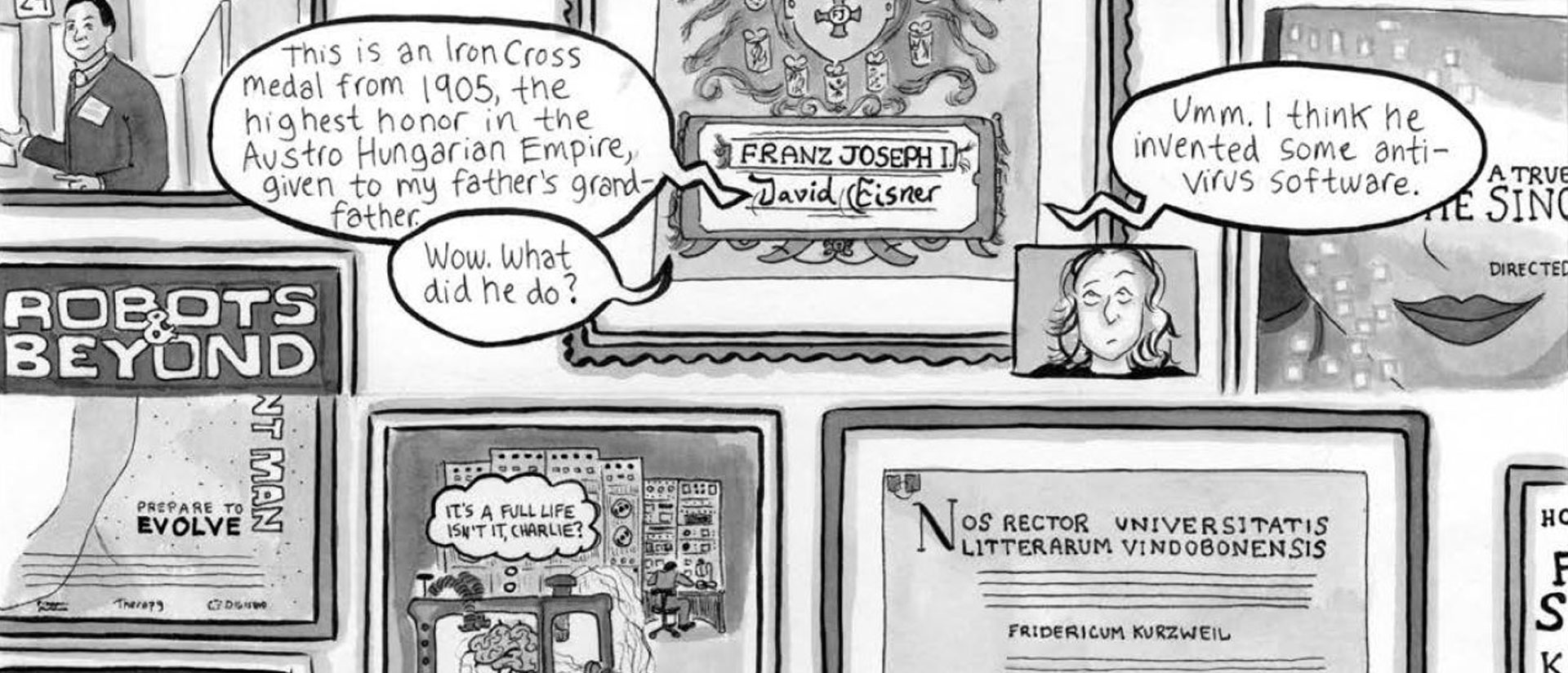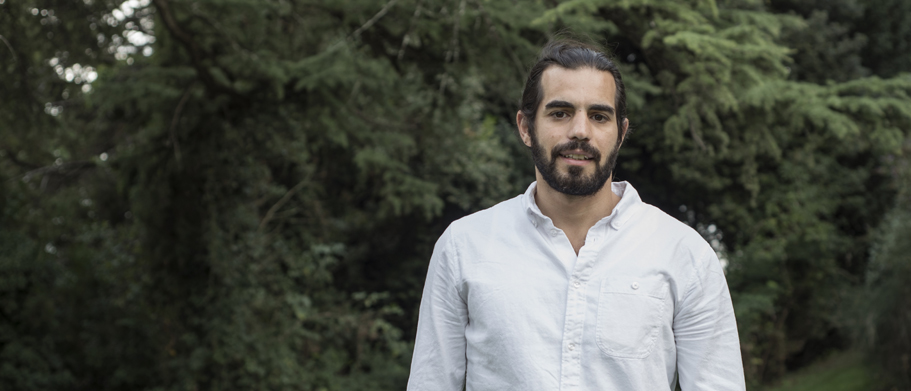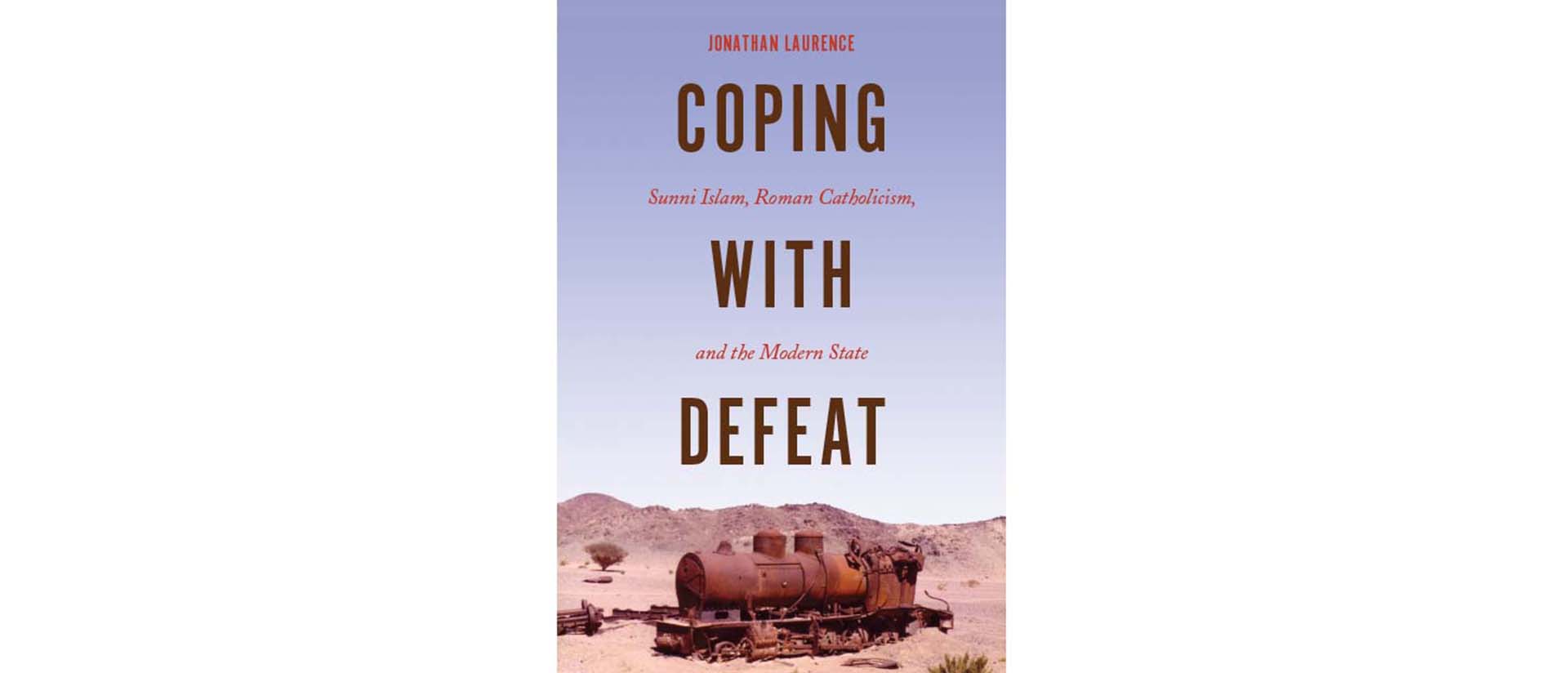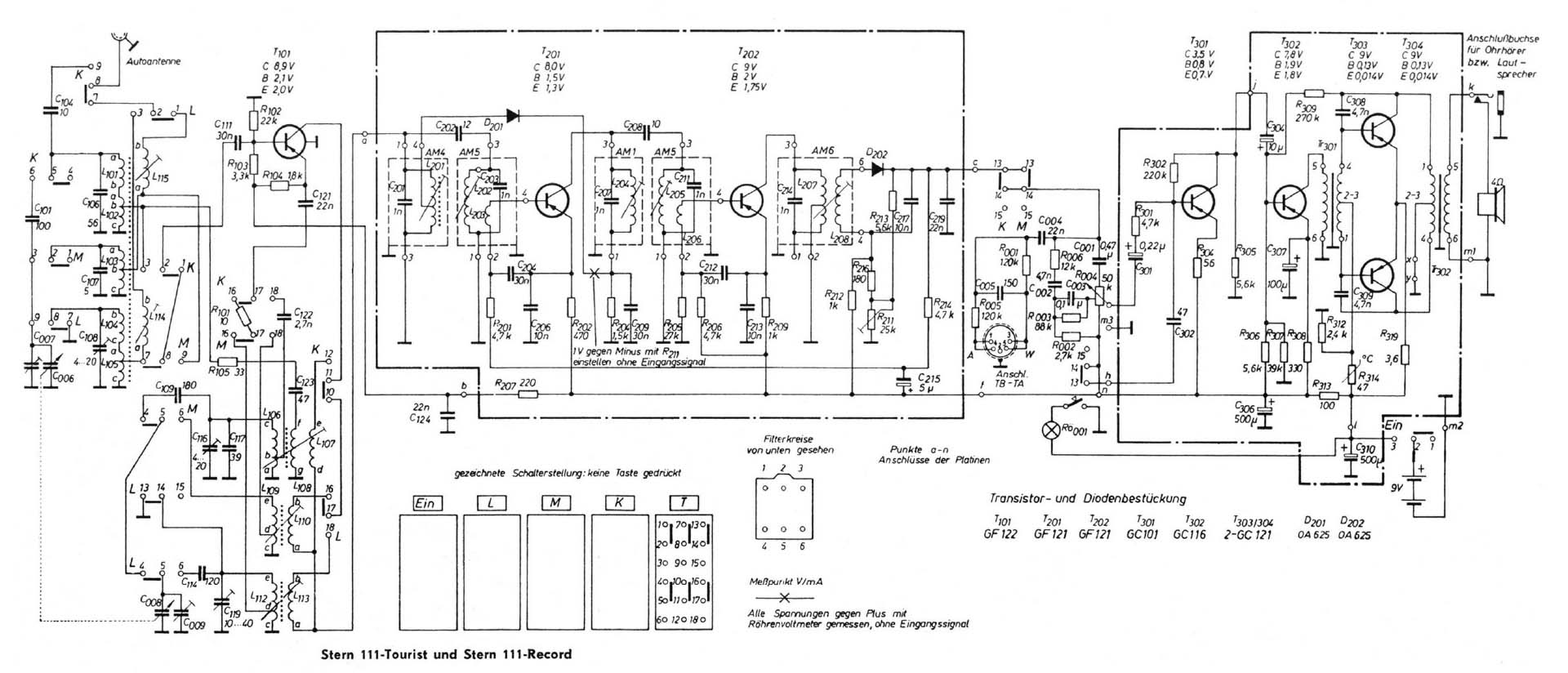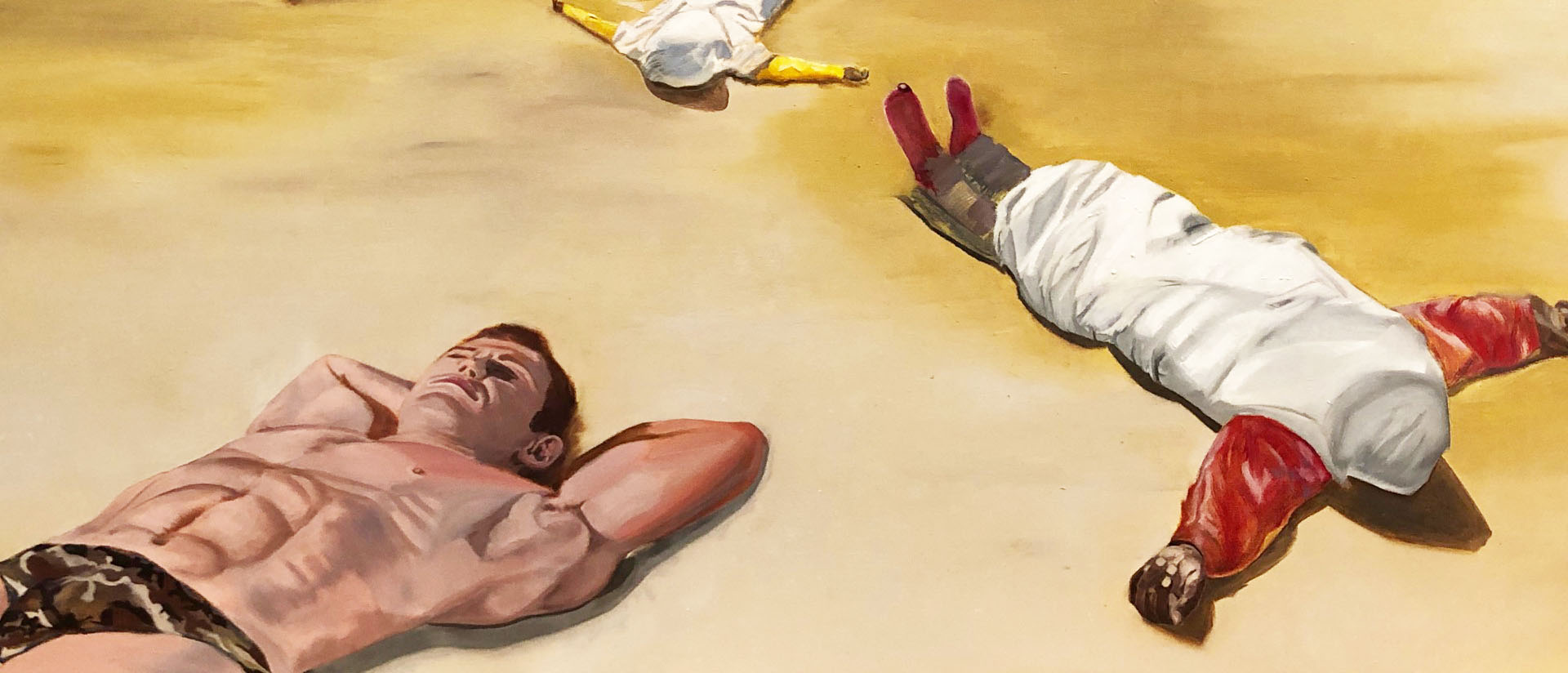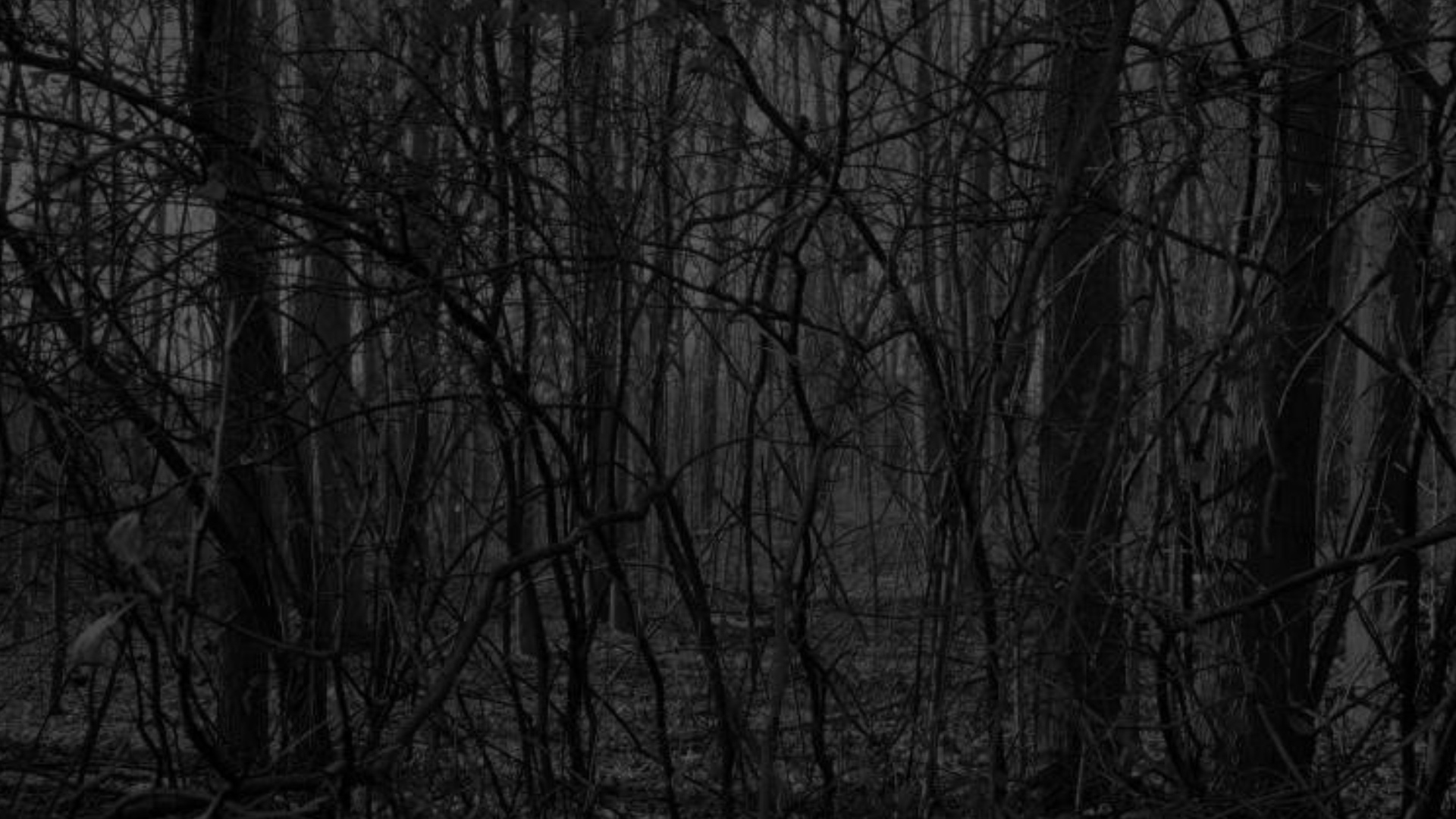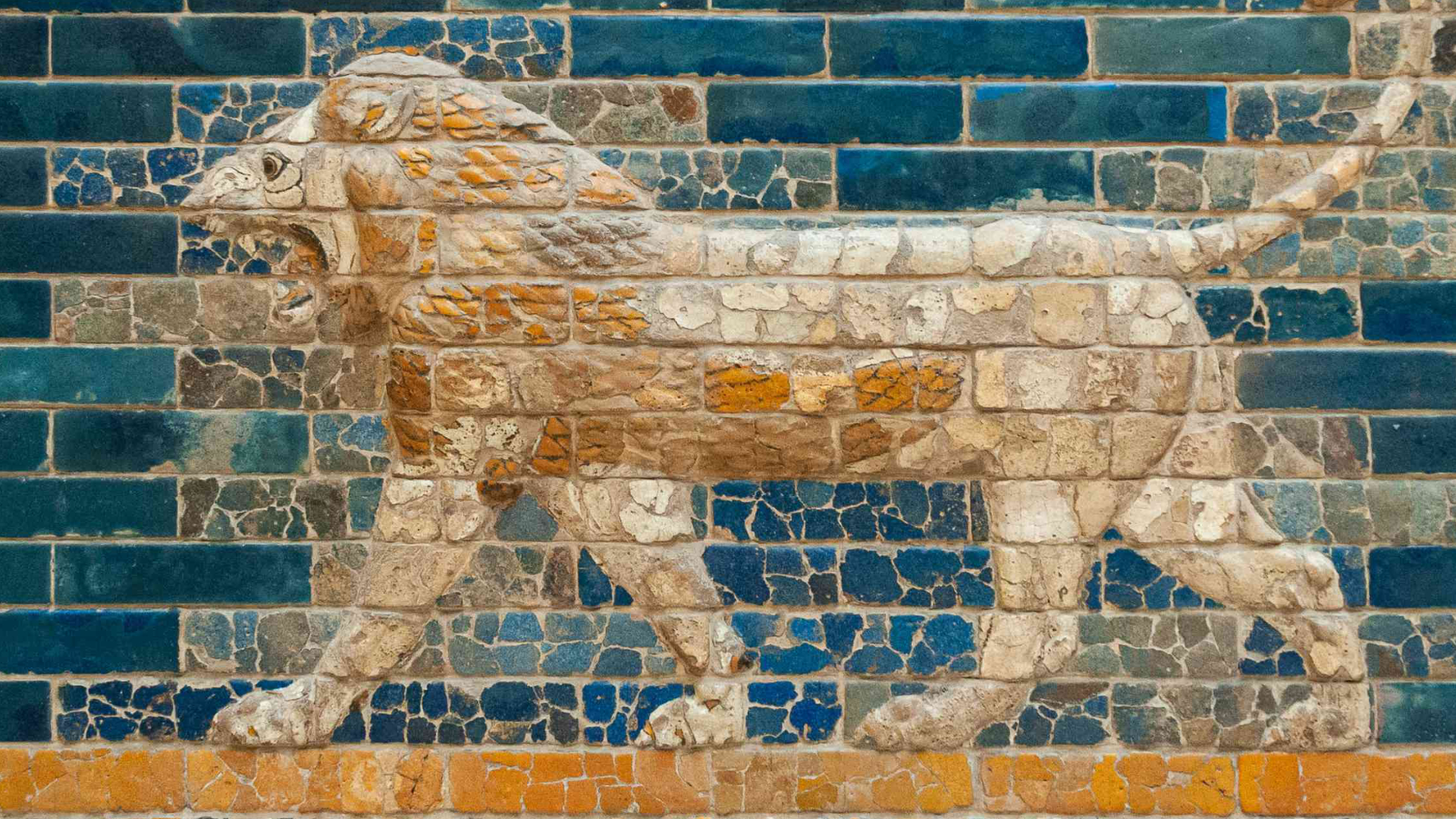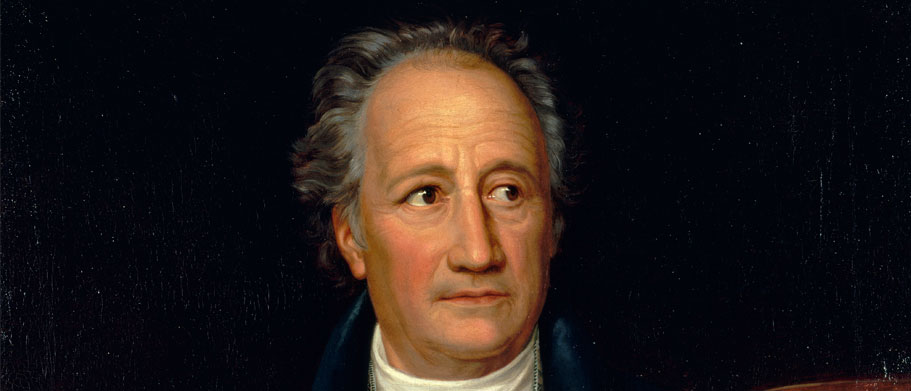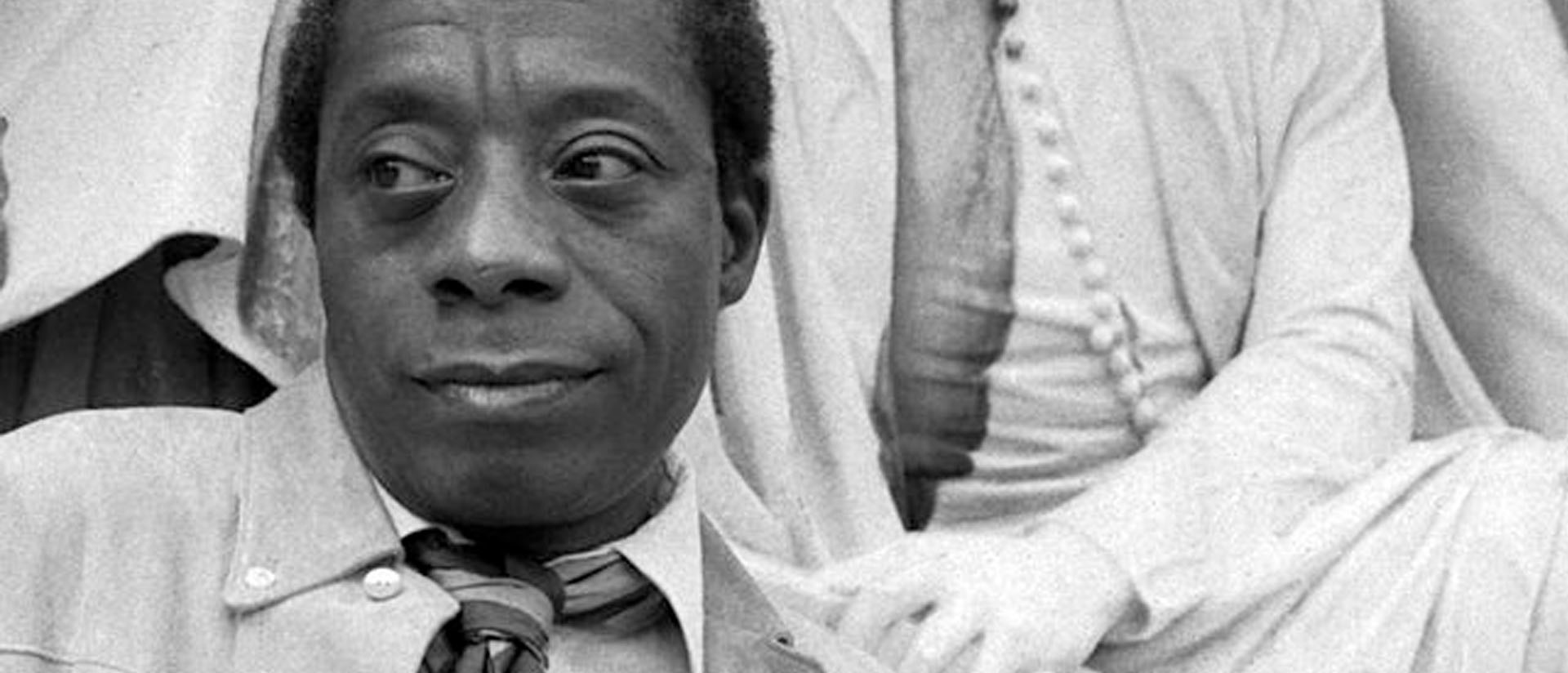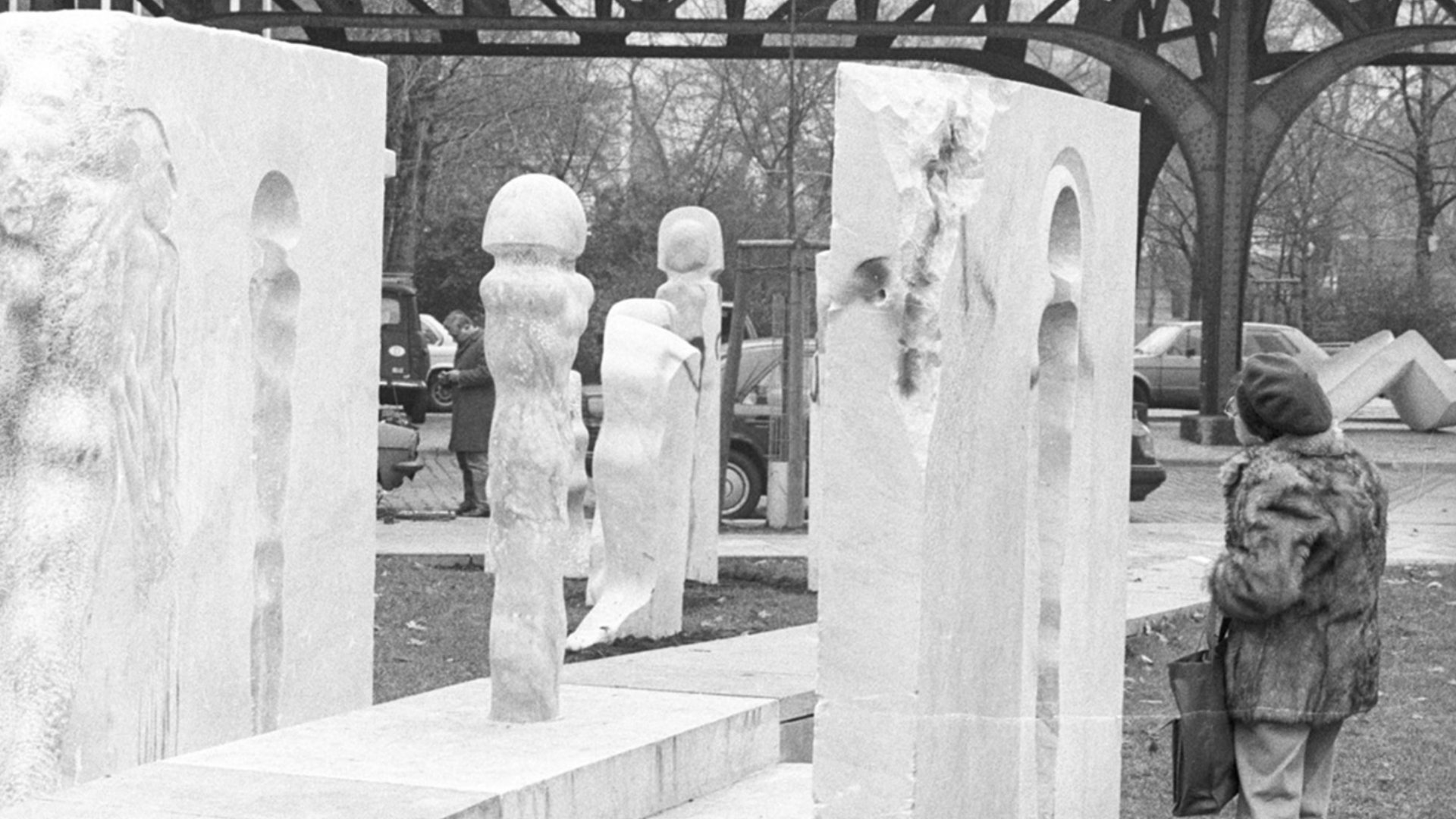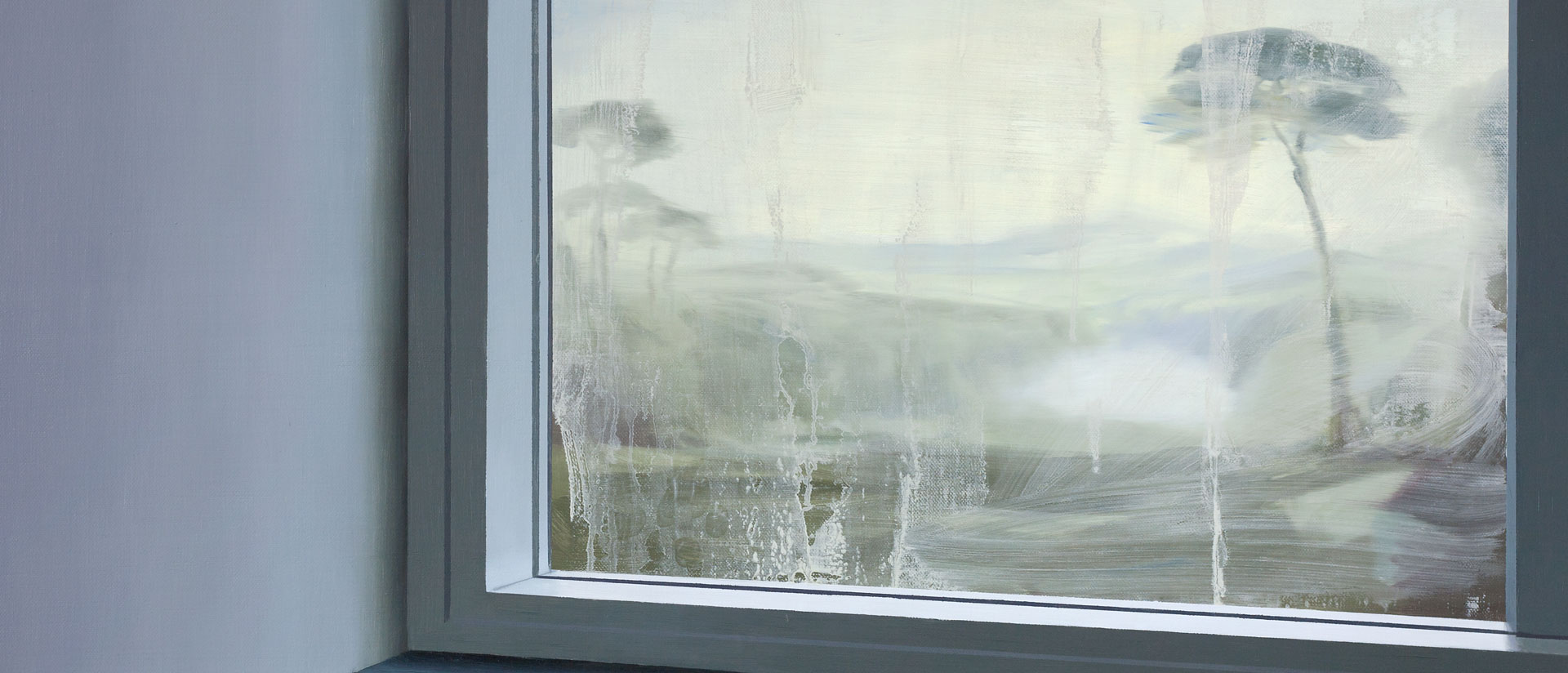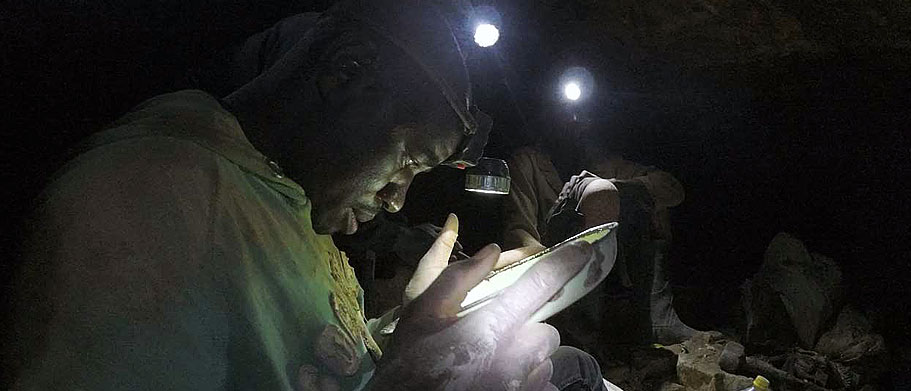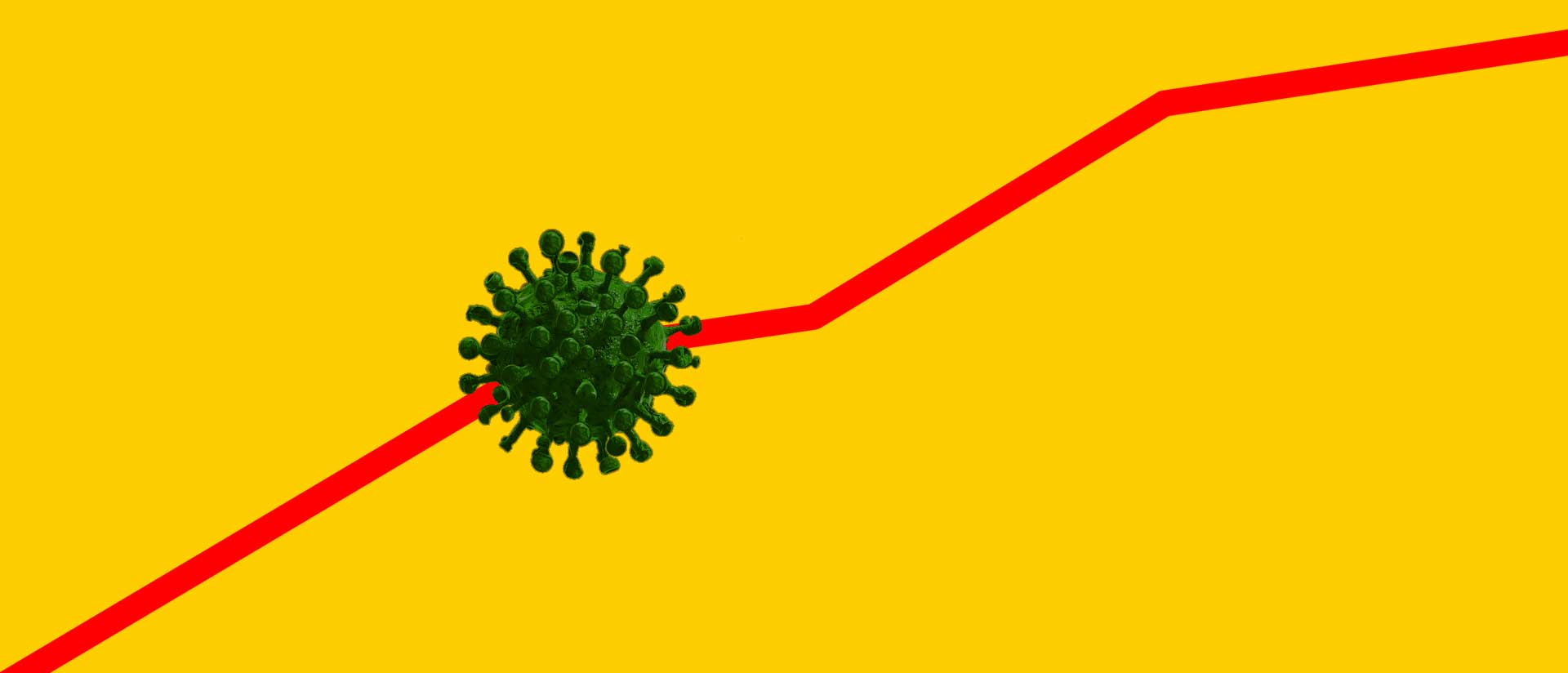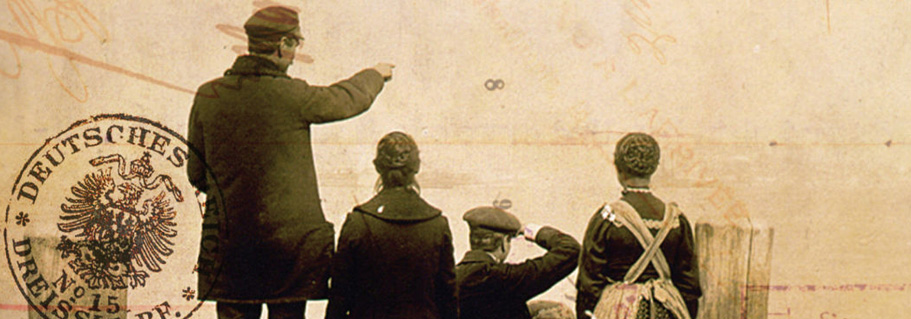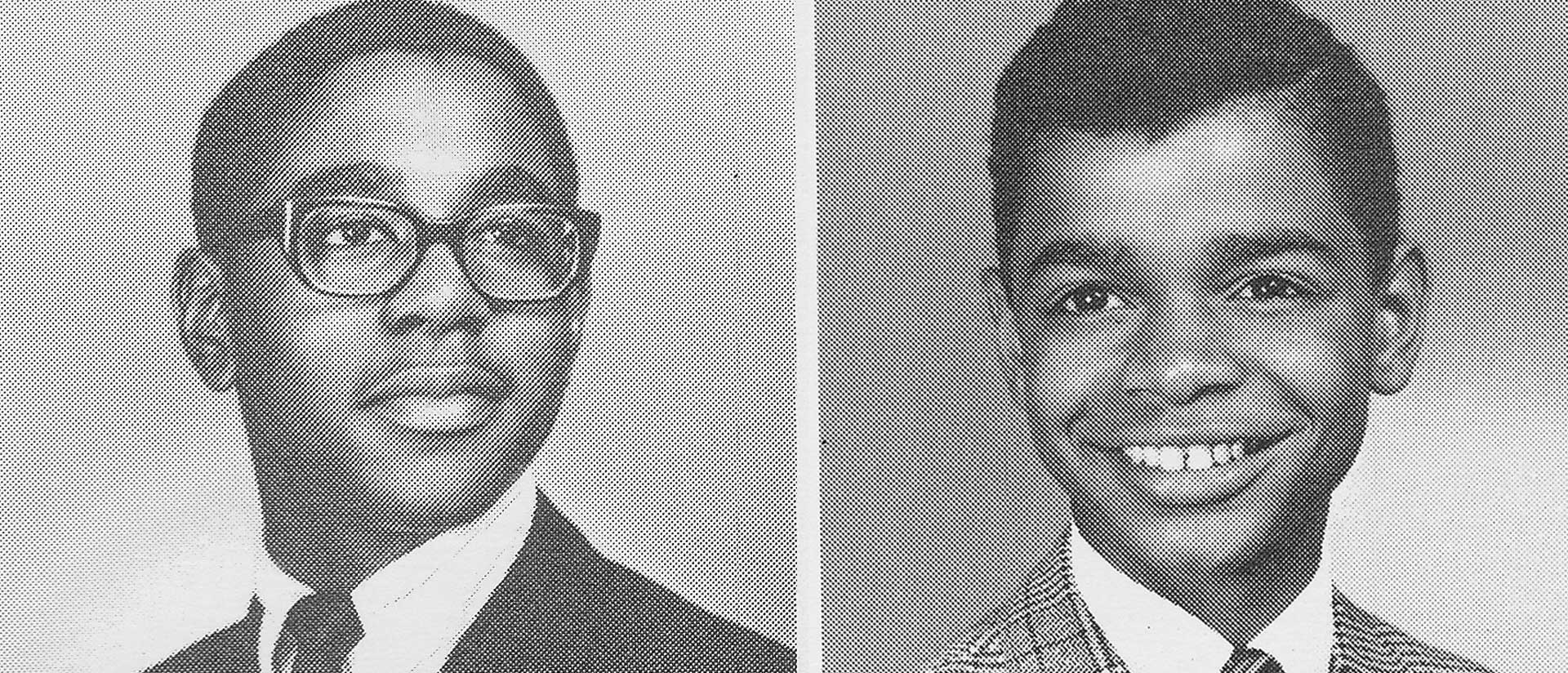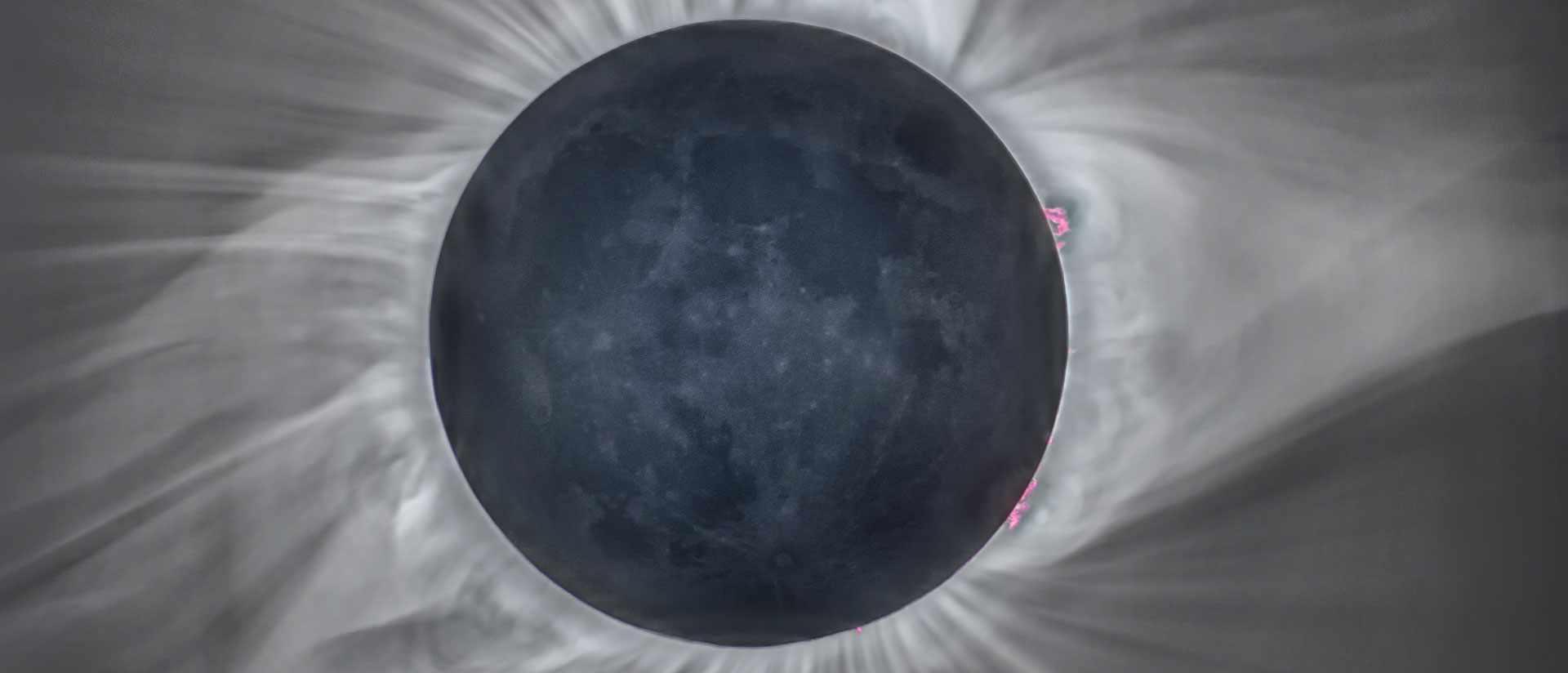
The Organs of Sense
Fiction by Adam Ehrlich Sachs
In an account sent to the Philosophical Transactions but for some reason never published there, or anywhere else, a young G. W. Leibniz, who throughout his life was an assiduous inquirer into miracles and other aberrations of nature, related the odd and troubling encounter he had with a certain astronomer who’d predicted that at noon on the last day of June 1666, the brightest time of day at nearly the brightest time of year, the Moon would pass very briefly, but very precisely, between the Sun and the Earth, casting all of Europe for one instant in absolute darkness, “a darkness without equal in our history, but lasting no longer than four seconds,” the astronomer predicted, according to Leibniz, an eclipse that no other astronomer in Europe was predicting, and which, Leibniz explained, drew his notice in part because the astronomer in question, whose observations of the planets and the fixed stars were supposedly among the most accurate and the most precise ever made, superior to Tycho’s, was blind, and “not merely completely blind,” Leibniz wrote (in my translation from the Latin), “but in fact entirely without eyes.”
There could be no question of his feigning blindness because his sockets, and this much was known, were empty, wrote Leibniz, for whom this encounter seems to have both hastened and brought to a close the sole significant intellectual crisis of a philosophical career otherwise dominated by the sanguine rationalism for which it is now known, and for which, at least since the time of Voltaire, it has periodically been ridiculed.
Now, this astronomer had built, it was rumored, the longest telescope known to man, and therefore the most powerful, a telescope said to stretch nearly two hundred feet, reported Leibniz; but according to all known laws of optics the true power of a telescope is a function also of the power of the eye that peers into it, left or right, and the power of the eye is of course a function of the existence of the eye, and in this case neither eye existed, “neither the left nor the right.” Hence in mid-June when Leibniz set out from Leipzig for Bohemia—first by carriage, down sun-dappled forest lanes, then, upon reaching the foothills, by horse, past the black mouths of salt mines, and finally, in the high mountains, by foot, along muddy paths forged by goats, over passes still deep in snow, a journey it would be all but impossible to imagine him making in his big curly wig and expensive silk stockings if we did not have this textual evidence that he indeed made it, although the absurd image of the Leibnizian wig poking through a snowdrift, or Leibniz himself stepping around a goat, has been sufficient in some quarters to cast doubt on the authenticity of the whole document—he knew that he was dealing most likely with a mystic, a madman, or a cunning fraud. But there was, as he explained to the Philosophical Transactions, a fourth and presumably final possibility, a possibility as intriguing as it was improbable: that he would encounter up there in the snowy mountains of Bohemia a man of reason, a man of science, whose prophesied flash of darkness would actually come to pass, who in other words stared up at the sky with his empty sockets and saw somehow what no other astronomer in the world could see, foresaw with no eyes what they could not foresee with two. If that were the case, Leibniz concluded, then when the light went on again four seconds later it would find the laws of optics in a shambles, knowledge in ruins, the human mind in an intimate embrace with the world, and the human eye in a state of disgrace.
He intended to reach the observatory by sunrise on the twenty-eighth, to stay there two days and two nights in order to “rigorously but surreptitiously assess the astronomer’s sanity” through “a series of subtly stringent interviews proceeding from the political to the theological,” i.e., from the lowest to the highest, “by way of the ethical, the logical, the astronomical, and the metaphysical,” and finally at noon on the third day, i.e., the thirtieth, to observe by the astronomer’s side the Moon’s predicted occultation of the Sun, the foretold four seconds of darkness on Earth, “the assessment sine qua non of his sanity.”
“He could pass my assessment without passing God’s,” Leibniz wrote.
“We are actually always passing each other’s sanity assessments but failing God’s,” he wrote. “I’m always passing your assessment and you’re always passing mine, always with flying colors, this is what a conversation is, an alternating series of not-very-stringent sanity assessments, though in God’s eyes presumably we’re frequently mad.”
Still, he noted, we never increase the stringency of our assessments!
“Of course, even the most stringent human assessment is ridiculous in light of even the laxest assessment administered by God,” Leibniz wrote.
It is worth noting that two weeks earlier, for reasons that remain obscure some three and a half centuries later, Leibniz had been denied his doctorate in law by the faculty of the University of Leipzig, despite having recently published his first book, On the Art of Combinations. Upon hearing the verdict he had gone for a walk on the outskirts of town, in the Rosental woods, where, while staring at the trunk of a tree, he was struck for the first time—as he recalled decades afterward in a letter to the French skeptic Simon Foucher—by the “calamitous” implications of the philosophy of Descartes, who had severed the mind from the world, transformed the world into a gargantuan machine, and made the mind doubt everything but its own existence. For a brief moment in his nineteenth year, Leibniz lost his faith in reason. The next fortnight finds him en route to Bohemia. I imagine him trudging through that summer snow in search not only of material for publication but of a happier and more harmonious relationship between mind and world.
In any case, something must have gone wrong, his calculations, his cartography, for it was not until after sunrise on the thirtieth, more than two full days behind schedule and only a few hours before the predicted eclipse, that Leibniz reached the observatory, and almost without realizing it, for he was at that point, as he recounts, suffering from hunger, dehydration, and hypothermia (“I have nearly completed a treatise on some remarkable properties of mountains,” he reports to the Philosophical Transactions), and had hallucinated over the course of the night prior, while staggering from one peak to the next under the lash of a freezing rain, a vast number of astronomical observatories “of every conceivable and inconceivable geometry,” not only triangular observatories and pentagonal observatories but observatories of hundreds of sides and in fact even thousands of sides, “in short, a night of pure polygonal unease.” “Observatories were constantly popping out of the mist, and only after I ran up to them in relief did I realize they were in my head.” So, when the sun rose and he saw right in front of him a small, perfectly circular tower of red brick, crumbling in parts, perched on the edge of a high cliff well above the clouds, with an immense telescope, even longer than rumored, protruding from it at an angle over the void, he assumed at first (“not unreasonably!”) that this circular observatory was just another illusion produced by his bedeviled mind, the final illusion, the observatory toward which last night’s distressing sequence was inexorably tending, and which, knowing his mind, his mind would not rest until it had produced. (“In the astronomer’s mind I would soon encounter a similar, but of course not identical, since no two things in nature are identical, sort of mind.”) It was only when he heard the telescope creak (“animalistically”) in the wind that Leibniz realized he had actually found it, “it was not inside my head, it was actually out there in the snow on the edge of the cliff.”
On the next page of his account he depicts with a draftsman’s hand the intricate system of pulleys and poles that held the heavy iron instrument aloft, marking lengths and angles with terrific precision. It is an impressive diagram, a marvel of its kind, far more detailed than the diagrams most instrument-makers of the time drew or commissioned for their own contraptions. The caption reads: “It was not inside my head.”
The tower had few windows, and the few that it did have were small, and shuttered tight, but after several circumnavigations of the structure Leibniz found a slat that was slightly askew and permitted him, if he stood on his toes, to peer inside. Outside it was bright and clear but inside the observatory it was dark apart from the light of a single candle, which dimly illuminated a very old man sitting on a three-legged stool, pressing one of his two empty eye sockets to the brass eyepiece of that colossal telescope. He neither wore glass eyes nor covered his sockets with patches; where the eyes are usually found “he merely had two uncanny voids.” Obviously someone at some point had simply gone ahead and plucked them out. Every so often the astronomer would suddenly pick up his quill and write something down with considerable urgency, and although Leibniz could not make out from his vantage point what it was the astronomer was writing, “he gave off at such moments the distinct impression of someone who has really seen something.” If this was a sort of performance, it was not clear for whom he might be performing, since there was no one else save a fat slumbering cat in the observatory, and as far as Leibniz could tell, he, Leibniz, had not yet been detected. If this was a performance for God, God, the being that need only be possible to be actual, and Who therefore is actual, because He is possible, and Who as a consequence of His actuality perceives at every instant an infinity of perceptions, would, no doubt, not be fooled, a fact of which reason itself, if it functioned rightly in him, would inform the astronomer. And if it is a performance for himself, he is, as I will prove, mad, Leibniz reasoned, for it is part of the essence of a performance that one stages it for others, so anyone who performs for himself acts as if he has within him another being, who might be performed for—an evident absurdity; and if he believes this absurdity, then he is mad, and if he acts this way without believing it, then he is also mad. Hence, Leibniz reasoned, if this “ceremony of sight” (my translation) is performed for himself, then he is mad; if it is performed for God, then he is also mad; and if it is performed for others, there being no one else here besides me, whom as far as I can tell he has not detected, then he is also mad. So, if he is sane, and he has not detected me, then this is not a performance, and either he really sees, or he thinks he really sees.
As for his physical appearance, apart from his missing eyes, Leibniz reported to the Philosophical Transactions, the old astronomer was shriveled-up and bony and hunched over, and had some white hair on his head but not a lot of it (though each strand was long, there were not many strands), and the skin of his neck sagged below his chin, and his nose was big, the big bent nose perhaps of an Israelite, though altogether his face emanated an aura of “amiability and intelligence.” Whenever the astronomer bowed his head to peer into the telescope, his head, from Leibniz’s vantage point, vanished completely behind the high jutting ridge of his shoulders; “his spinal column had probably deformed with age.” The astronomer wore the rags and furs of the goatherds Leibniz had passed on the ascent. “Nothing on his feet, nothing on his head.” “The possibility that he actually was a goatherd, who had lost his eyes, and his mind, and strolled into this observatory, and began calling himself ‘the astronomer,’ was of course not lost on me.” From the moment he first saw him, Leibniz was well aware that what the old man herded might be something quite other than “flocks of truth and falsity through the pastures of the kingdom of reason.”
On the next page: a drawing of the old man hunched over on his stool, at the eyepiece of the telescope, the lengths of his limbs and the angle at which he held his head marked with precision as though the man himself were part of his instrument. The caption reads: “Was he a goatherd?”
If the solar eclipse took place, Leibniz noted, that was sufficient proof that he was, in fact, an astronomer, because the probability of someone who is not an astronomer predicting, eyes or no eyes, an eclipse that no other astronomer in the world has predicted is negligible. But if the solar eclipse failed to take place, it was no proof that he was not an astronomer, since it is not only nonastronomers who mispredict eclipses, but also astronomers, eyes or no eyes, though of course especially no eyes. The probability of someone who is an astronomer, even a sighted one, mispredicting a solar eclipse is actually quite high, as any induction over past solar eclipse mispredictions will indicate, since astronomers, even the sighted ones, are constantly mispredicting eclipses. “If the eclipse does occur we can deduce that he is actually an astronomer and actually sane, but if the eclipse fails to occur we can deduce nothing at all—not that he is not an astronomer, not that he is a fraud, not that he is not sane: nothing!” Leibniz suddenly realized the one-sidedness of the sanity assessment that would shortly, for it was now almost nine o’clock in the morning, be administered by God in the form of a solar eclipse occurring or failing to occur. If the old man passed the test he was indeed sane, but if he failed the test it was no proof that he was not sane.
“He could fail God’s assessment without failing mine,” Leibniz wrote.
It is straightforward to prove that someone is an astronomer, or is sane, but how do you prove that someone is not an astronomer, or is insane? The first proof is trivial, the second perhaps impossible, Leibniz explained. How in general do you prove that someone is insane? What would such a proof even look like? Natural phenomena are of no help here. God, who, of course, as a consequence of His nature, has infinite knowledge of the universe, including the universe inside the human head, knows the answer, but the limitations of man prevent man from receiving that knowledge from Him. “I hazard to suggest that man is, in this respect, on his own.” There were now exactly three hours until the predicted eclipse. Leibniz would, in that time, he wrote, rap on the window, gain entry to the observatory, ask the old man simply, How did you come to lose your eyes and how do you claim to see the stars without them?, and then at the stroke of noon incline his head toward the heavens. If Leibniz deemed the man’s story sane, and the solar eclipse furthermore occurred, then the old man was certainly sane. If Leibniz deemed the man’s story insane, yet the eclipse occurred, then, too, the old man was certainly sane. If Leibniz deemed the man’s story insane, and the eclipse furthermore failed to occur, then the old man was probably, but only probably, as it would be no demonstration, insane. And if Leibniz deemed the man’s story sane, but the eclipse failed to occur, then the old man was possibly (but only possibly!) sane, although, in truth, in that case, at once the thorniest case and the most common, and, added Leibniz, actually even the quintessential case here on Earth, we would know more or less nothing at all.
“At that moment,” Leibniz wrote, “I rapped on the window.”
This story was excerpted from The Organs of Sense, by Adam Ehrlich Sachs. Published by Farrar, Straus and Giroux, May 21, 2019. Copyright © 2019 by Adam Ehrlich Sachs. All rights reserved. Reprinted with permission.

